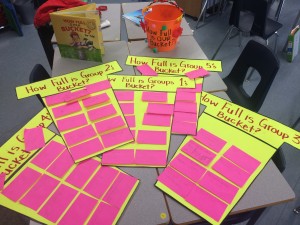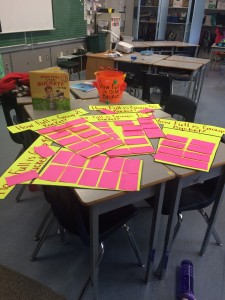Finally back in the class after a long break.
It is surprising how much I missed the class and the students. Each student is an unique personality and they are so special.
It did not feel that I was away from the class for so long. I picked up where I left off.
After being back I did notice that the students were a little different. I do now know if it was the outcome of coming back from the break or a development in their personalities. They were all so focused. This was prominent in the quality of work in one of the Language Arts activity they were doing.
The class was so reflect on the goals they had set out for themselves in the first term. Once that was done the students were to come up wit new goals for the second term. When reading some of the goals from the first term in comparison to their new goals in the second terms they all seemed to be focused on academics.
As an educator I was very happy to see that my students were willing to develop, learn and grow to become better students. What else could an educator ask for?

